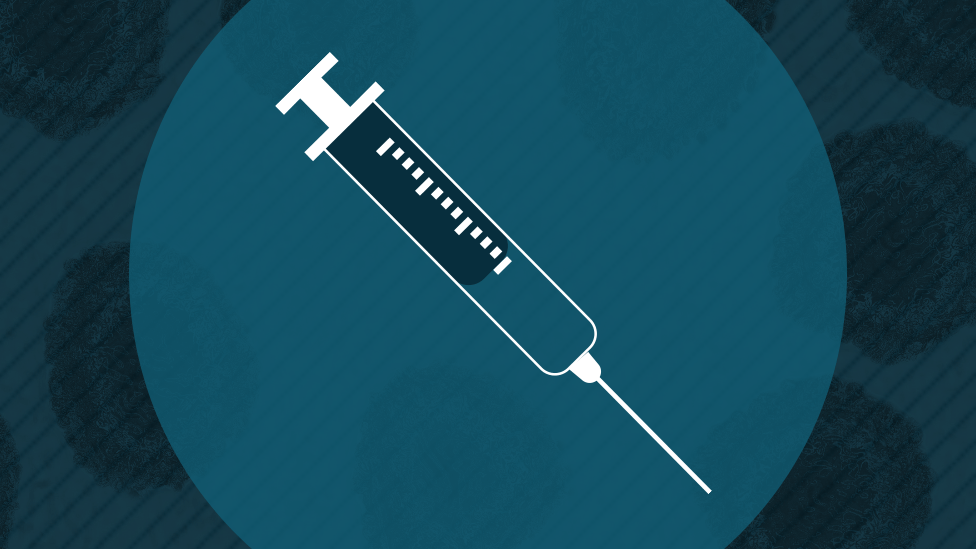Coronavirus: Prisoners to be temporarily freed in response to pandemic
- Published
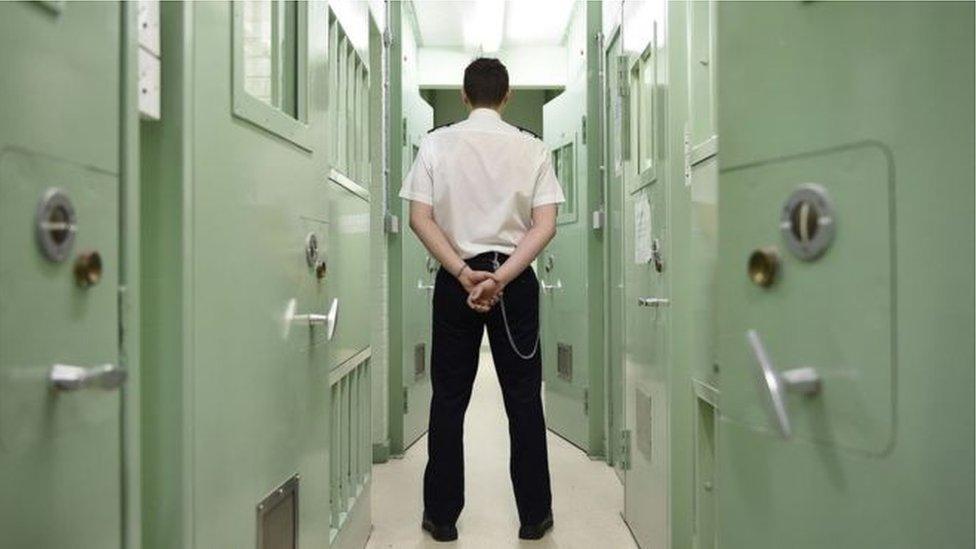
Some prisoners are to be released temporarily from Northern Ireland's jails in response to the crisis caused by the coronavirus outbreak.
It will involve "fewer than 200 individuals" who are entering the last three months of their imprisonment.
It will not apply to prisoners convicted of serious crimes such as murder, terrorism and sex offences. There are about 1,500 prisoners in NI.
Twenty two people have so far died with coronavirus in Northern Ireland.
Justice Minister Naomi Long said there was "no alternative" to doing this.
"Such a move is contrary to the ethos of the justice system and will cause distress to victims and their families," Mrs Long said.
"However, in the context of the pandemic we are facing, and to ensure as far as possible the safety and wellbeing of staff and those in our care, it is I believe an appropriate and reasonable step."
About 200 prison staff - approximately 20% of the prisons workforce - are currently off-duty due to the coronavirus pandemic.
Those who will be released will be subject to conditions including a curfew and a ban on victim contact.
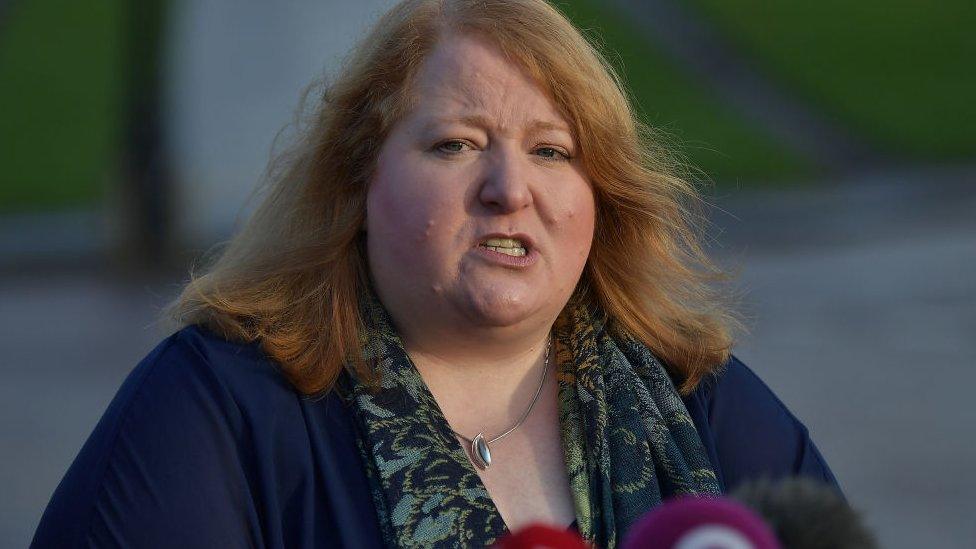
Justice Minister Naomi Long acknowledged that release or prisoners will cause distress to victims and their families
The scheme will be kept under constant review, Mrs Long said.
It is believed the first release will occur later this week. Prison visits are already banned.
Meanwhile, earlier, Mrs Long said the public are still behaving in a "reckless" manner and are not abiding with social distancing rules.
Mrs Long said that, in general, people had been keeping to the rules better than last weekend.
But, she said, people were still travelling to areas like the beach to go for a walk.
New powers to enforce guidelines on staying at home and businesses staying closed have come into force in NI.
The regulations were published, external on Saturday.
They include the ability to force businesses to shut and crack down on people who leave their homes without a "reasonable excuse", which includes:
Obtaining basic necessities, including food and medical supplies
Taking exercise either alone or with other members of your household
Seeking medical assistance
Providing care or assistance to a vulnerable person, or to provide emergency assistance
Donating blood
Travelling for the purposes of work or to provide voluntary or charitable services, where it is not reasonably possible for that person to work, or to provide those services, from the place where they are living
Attending the funeral of a family member
Penalties, ranging from fixed penalty notices to fines of up to £5,000, are being introduced as enforcement.
The maximum fine will be reserved for businesses but people could face a maximum fine of £960 if they do not comply.
"Take your dog for a walk, but do it locally," Mrs Long told BBC's Good Morning Ulster programme on Monday.
She said she did not want to see people being fined.
"We aren't trying to be killjoys," she added.
Police Service of Northern Ireland Chief Constable Simon Byrne said that there were a few occasions over the weekend where people were travelling to Northern Ireland's "beauty spots".
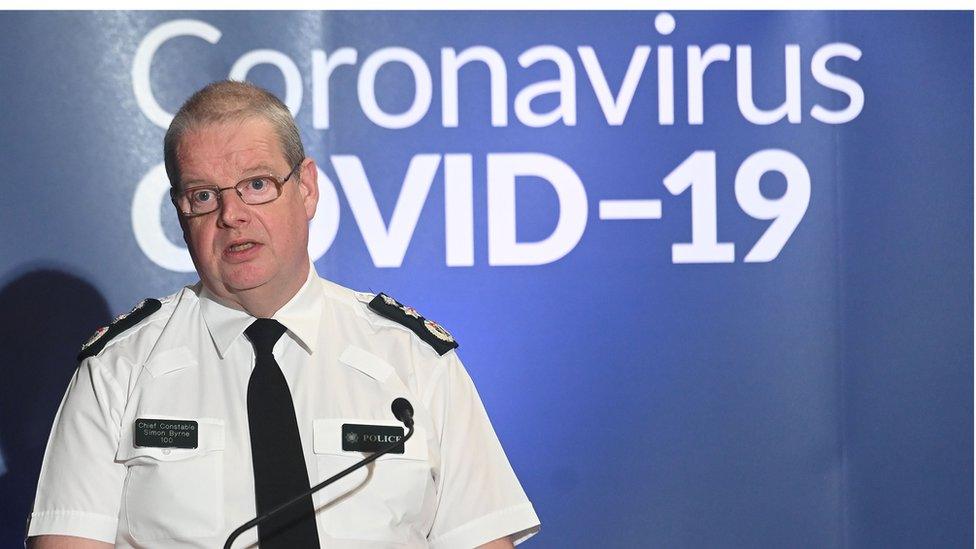
Simon Byrne said officers will "enforce where necessary when people do not listen and put others at risk"
Mr Byrne said that in one case police had to tell a person that was self-isolating to return home.
On Sunday, the chief constable said police will use the new laws to enforce coronavirus-related restrictions on public life only when "absolutely necessary".
He said officers will issue a £60 penalty to those failing to comply with the measures if required.
Mr Byrne said there are two members of the policing staff confirmed to have Covid-19, but that the PSNI's absence in work rate is one of the lowest in the policing force across the UK.
He added that the PSNI has "significantly stepped up" the amount of personal protective equipment it has for officers.
A flight from the Republic of Ireland to China to collect personal protective equipment (PPE) landed back in Dublin overnight.
It is the first of 10 flights to Beijing to deliver PPE to Ireland as part of a €208m (£180m) deal.
Some of the PPE from these flights is believed to be destined for Northern Ireland.
- Published28 March 2020
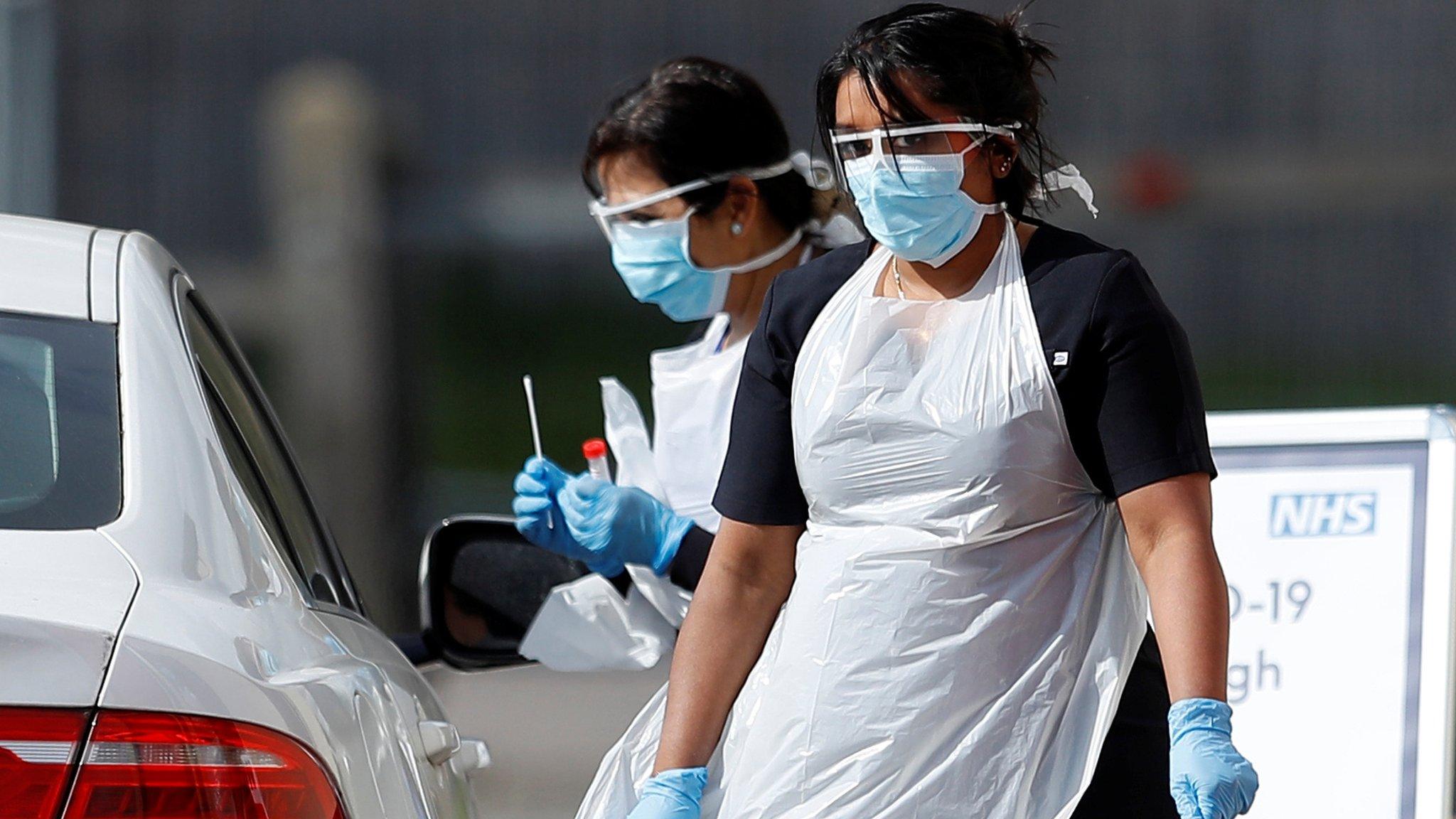
- Published3 May 2022
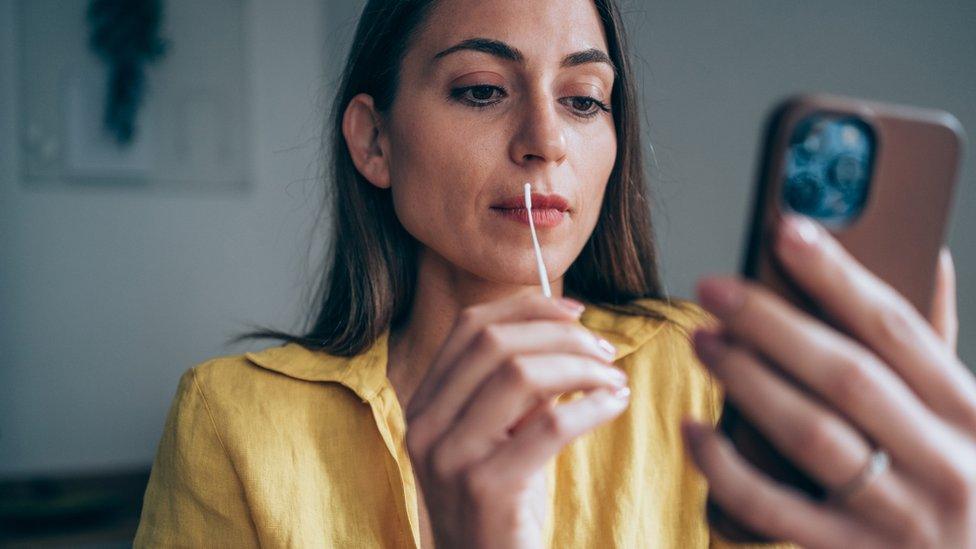
- Published6 October 2021

- Published28 May 2021
